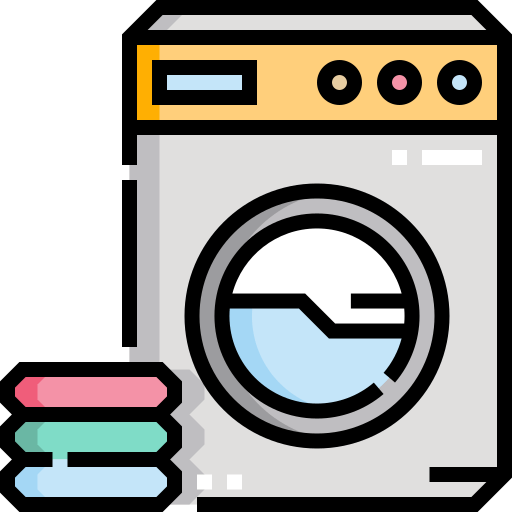Washing Machine Repair Near Me in Hubli

Our services include:
- Repair of mechanical and electrical problems of washing machines.
- Replacement of faulty parts, such as motors, belts, and pumps of washing machines.
- Installation of new washing machines.
- Regular maintenance and cleaning to keep your washing. machine running smoothly.
- Emergency repairs & services of washing machines available 24/7.
SAME DAY SERVICE
100% GUARANREE

At OneClickDoorService, we believe in providing affordable services without compromising on quality. We offer competitive pricing for all of our repair services and even offer discounts for our loyal customers
We take pride in offering fast and reliable repair services, with a guaranteed response time of one hour after contacting us. Our team is available 24/7 to handle any emergency repairs, so you can get back to your daily routine as quickly as possible.
CONTACT US
Frequently Asked Questions
Washing machine repair near me
A: Some signs that your washing machine may need to be repaired include excessive noise or vibration during operation, failure to drain properly, leaks, or failure to complete a cycle. If you notice any of these issues, it may be time to call a repair technician.
A: It is possible to repair some minor issues with your washing machine yourself, such as unclogging the drain or replacing a broken belt. However, for more complex issues, it is usually best to call a professional technician to ensure the repair is done correctly and safely.
A: The cost of washing machine repair can vary widely depending on the type and extent of the damage. Minor repairs may cost as little as $50, while major repairs could cost hundreds or even thousands of dollars. It's best to get an estimate from a repair technician before committing to a repair.
A: The length of time it takes to repair a washing machine can vary depending on the extent of the damage and the availability of parts. Minor repairs may only take a few hours, while major repairs could take several days or even a week or more.
A: It depends on the extent of the damage and the age of the washing machine. If the repair is minor and the machine is relatively new, it may be more cost-effective to repair it. However, if the machine is older and the repair is major, it may make more sense to replace it with a newer, more efficient model.
A: Regular maintenance can help prevent your washing machine from breaking down. This includes cleaning the lint filter, checking for leaks, and not overloading the machine. It's also important to use the machine according to the manufacturer's instructions and to avoid using harsh chemicals or abrasive materials that could damage the machine.
A: If your washing machine won't start, check to make sure it's plugged in and the circuit breaker hasn't tripped. If that's not the issue, it may be a problem with the door latch, the timer, or the electronic control board. In these cases, it's best to call a repair technician.
A: Loud noises during operation can be caused by a number of issues, such as a damaged drum bearing, a worn belt, or loose parts. If you notice a loud noise, it's best to call a repair technician to diagnose and fix the issue.
A: If your washing machine is leaking, turn off the water supply and unplug the machine. Check to see if there are any visible cracks or damage to the hoses, and tighten any loose connections. If you can't identify the source of the leak, call a repair technician.
A: If your washing machine isn't draining properly, check to see if there is a clog in the drain hose or pump. You can also try cleaning the filter or checking for any visible damage to the pump. If you can't identify the issue, call a repair technician.
A: Yes, hard water can cause mineral buildup in your washing machine, which can damage the machine and reduce its lifespan. To prevent this, use a water softener or descaler, and regularly clean your machine according to the manufacturer's instructions.
A: No, it is not safe to use a washing machine with a cracked drum. A cracked drum can cause leaks, damage to the machine, and even injury to the user. If you notice a cracked drum, it's important to call a repair technician to have it replaced.
A: Excessive shaking during the spin cycle can be caused by an unbalanced load, a worn suspension or shock absorber, or a damaged drum bearing. Try redistributing the load or reducing the load size to see if that helps. If not, it may be necessary to call a repair technician.
A: An unpleasant odor from your washing machine can be caused by bacteria, mold, or mildew growth. This can happen if you regularly use cold water, use too much detergent, or leave wet clothes in the machine for too long. To get rid of the odor, run a hot cycle with no clothes and use a washing machine cleaner or a solution of vinegar and baking soda.
A: Yes, bleach can be used to clean your washing machine. However, it should only be used sparingly and according to the manufacturer's instructions. Too much bleach can damage the machine or cause it to produce an unpleasant odor.
A: It's recommended to clean your washing machine at least once every three months, or more often if you notice any issues such as odor or build-up. Regular cleaning can help prolong the life of your machine and keep it functioning properly.
A: If your washing machine is not filling with water, it could be due to a clogged or faulty inlet valve, a malfunctioning water level sensor, or a kinked or clogged hose. Try checking these components and cleaning or replacing them if necessary. If the issue persists, it may be necessary to call a repair technician.
A: If your washing machine is not spinning, it could be due to a number of issues such as a broken belt, a malfunctioning motor, or a faulty lid switch. Try checking these components and replacing them if necessary. If the issue persists, it may be necessary to call a repair technician.
